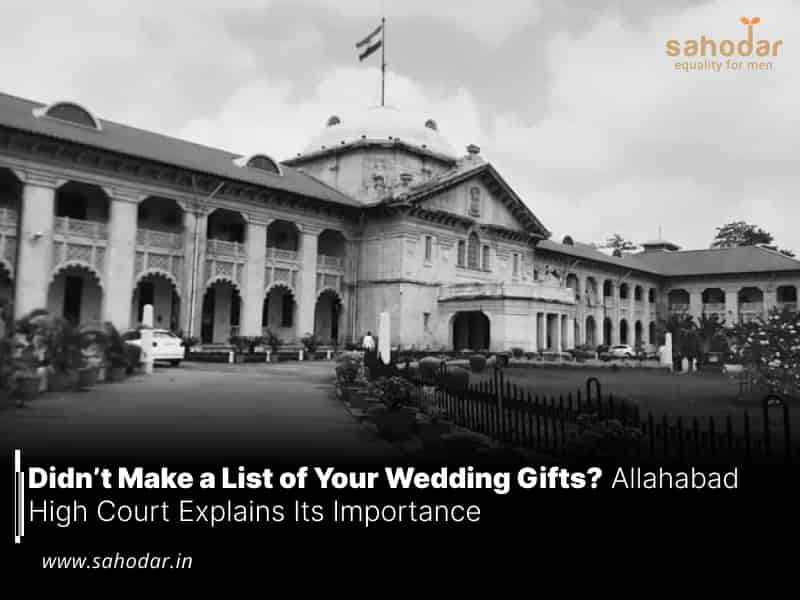Presents received by the bride or the bridegroom at the time of marriage are not treated as dowry under the Dowry Prohibition Act.
The Allahabad High Court recently underscored the widespread non-compliance with a rule under the Dowry Prohibition (Maintenance of Lists of Presents to the Bride and Bridegroom) Rules, 1985, which mandates couples to keep a record of their wedding gifts [Ankit Singh and 3 Others v. State of UP and Another].
Justice Vikram D Chauhan observed that in cases involving dowry demand allegations, the parties were not submitting these lists with their petitions.
“It has not been brought to the notice of this Court that the aforesaid provision is in any manner being monitored or implemented by any responsible officer of the State Government. Section 3(2) of the Dowry Prohibition Act, 1961 is required to be implemented in its letter and spirit so that citizens are not subject matter of frivolous litigation,” the single-judge said.
The Court clarified that the law includes an exception stating that gifts given to the bride or bridegroom at the time of marriage are not considered dowry.
However, to ensure this exception is applicable, it is essential that these gifts are documented in a list. This helps prevent false allegations from being made by either party or their family members later on.
The Court also emphasized that the list of presents must be signed by both the bride and the bridegroom.
“The Dowry Prohibition (Maintenance of Lists of Presents to the Bride and Bridegroom) Rules, 1985 have been framed in this respect by the Central Government in the Indian marriage system gifts and presents act as a token of celebration and honouring the important event. The legislature was aware of the Indian tradition and as such the above mentioned exception was carved out. The above mentioned list would also act as a measure to thrash out the allegations of dowry which are subsequently levelled in matrimonial dispute,” the Court said.
The Court noted that the law mandates the appointment of dowry prohibition officers to ensure compliance. It then inquired if the State had appointed these officers.
If these officers have not yet been appointed, the State government must explain the delay, especially given the increasing number of dowry-related disputes, the order stated.
“The State Government shall also disclose the orders issued for implementation of the Dowry Prohibition (Maintenance of Lists of Presents to the Bride and Bridegroom) Rules, 1985. The Dowry Prohibition Officers are enjoined with the duty to ensure compliance of the Dowry Prohibition Act and the Rules framed thereunder. The affidavit shall also disclose how many Dowry Prohibition Officers have been appointed throughout the State and at what level,” the Court ordered.
The Court also requested the State to inform whether officers are collecting lists of presents from couples at the time of their marriage.
Additionally, the State was asked to provide details of any rules enacted under the Dowry Prohibition Act. The next hearing is scheduled for May 23.
Advocates DK Ojah and Vikas Kumar Ojha represented the petitioners.

